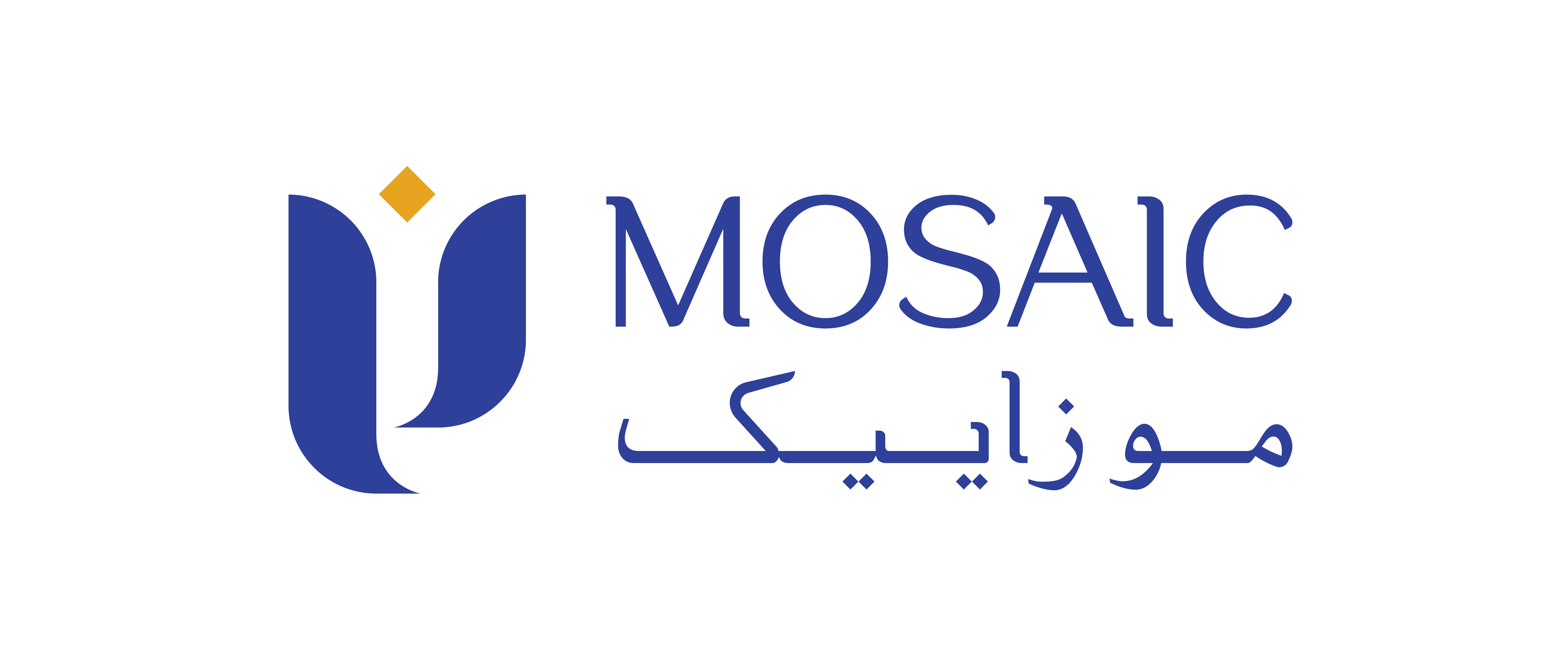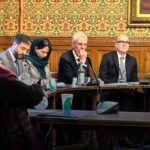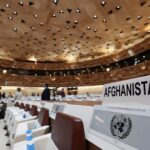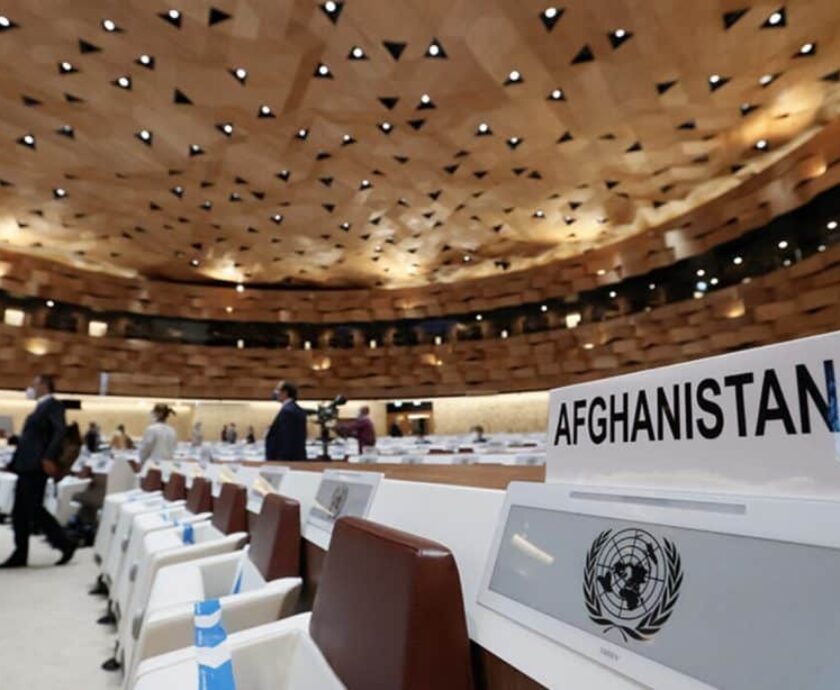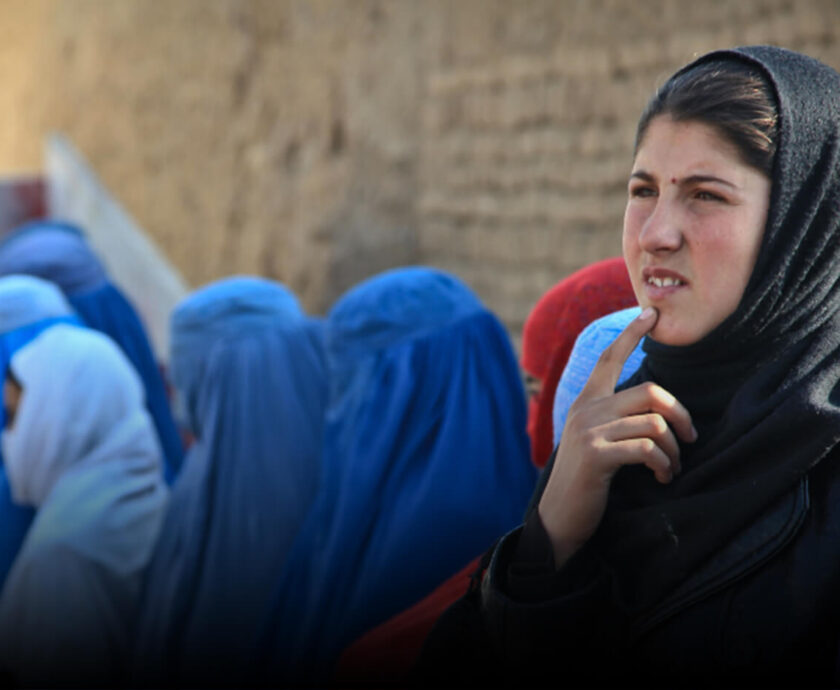In an unprecedented move, the British Parliament has started looking into the situation of women and girls in Afghanistan by holding a Parliamentary Inquiry on Gender Apartheid. This Inquiry is led by the prominent lawyer and Peer at the UK House of Lords, Baroness Helena Kennedy KC, and a group of distinguished British Parliamentarians. The British Parliament’s report will make a significant achievement in understanding the situation of women and girls in Afghanistan as ‘gender apartheid’. It will also allow for evidence gathering towards the criminalisation of gender apartheid in international law.
The objective of this meeting was to facilitate discussions and exchange of views on the importance of creating an inclusive, diverse, and democratic civil society forum in Afghanistan to engage with western governments, parliaments, as well as international organisations on policy and strategy on Afghanistan.
The meeting brought together a distinguished panel of speakers who offered their insights and expertise.
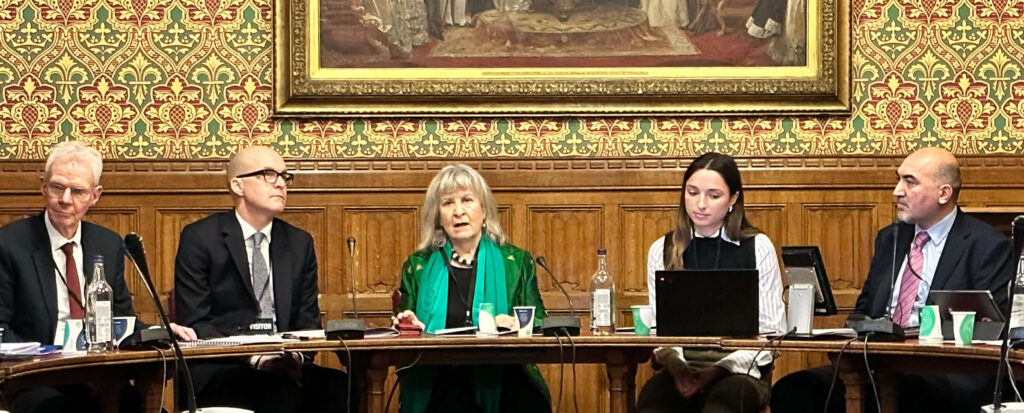
This report highlights Baroness Kennedy’s views on the concept of ‘gender apartheid’ in Afghanistan. It is based on her opening remarks in an event held at the British Parliament on 13 December 2023 on the need for the establishment of a civil society forum forAfghanistan. The event was chaired by Baroness Kennedy and co-hosted by Mosaic and the Tony Blair Institute for Global Change. This report also emphasizes Baroness Kennedy and her team’s commitment to supporting the establishment of an inclusive, diverse, and democratic civil society forum in Afghanistan to address urgent policy matters, including human rights, particularly women’s rights, in Afghanistan.
Initially, Baroness Kennedy acknowledged panelist Catherine West MP for Hornsey, Wood Green, and Shadow Minister for Asia Pacific in Foreign, Commonwealth & Development Office (FCDO), saying that Catherine’s commitment to a democratic Afghanistan is recognized as she has raised issues related to the country on the floor of the House of Common on many occasions Therefore, having her as a panelist on the formation of an inclusive, diverse and democratic civil society forum is important. Kennedy commended panelist Catherine West for her exceptional commitment to Afghanistan and her efforts in raising awareness on the challenges the country faces. Catherine West has been a strong advocate for a genuinely equal and inclusive society, recognizing the vital role of women in achieving this vision.
Subsequently, Baroness Kennedy emphasized the importance of respecting human rights, both at the individual and collective levels. On the articulation of the concept of ‘gender apartheid’, quoting her words verbatim is necessary. She argued that “what is happening to women currently in Afghanistan is shocking to the world. The idea of what is happening, I’m only ready to describe as gender apartheid. It is shocking. I want to remind you what apartheid means. I, as a young woman, was very active in anti-apartheid movement in South Africa. Because it was very clear to the world that there was a system which was excluding a certain category of people, people on the ground of their race, from full participation in society. If you look at the Apartheid Convention, which now makes it a crime to create an apartheid inside society, you will see the law, and see this as a lawyer, and you read the law, and if you were to transfer the idea that it is about race to the idea it is about gender and women, it is precisely the same.”
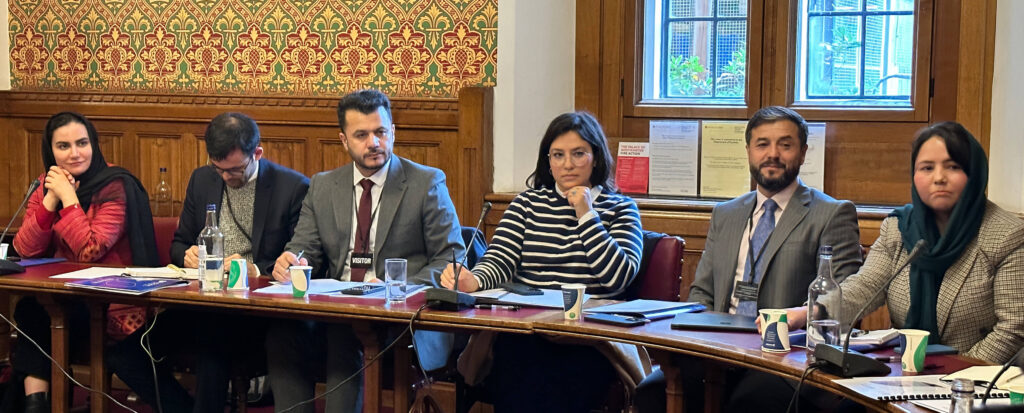
After connecting the issue of race with gender in her speech, Baroness Kennedy went on to explain the situation of women in Afghanistan by arguing “the women in Afghanistan are currently being denied of participation in their society; denied freedom of association, freedom to have an education, freedom to be involved in the legal system as judges as lawyers, freedom to be involved in the media to help enable discussions as to what is happening in society and news of what is done in the name of society. Women are deprived of the opportunity of freedom of association. Because in places women in communities associate they often go to hairdressers or beauticians not because they are particularly preoccupied with looking good but because of exchange of information” and these exchanges are vital for sustaining society.
Finally Baroness Kennedy maintained that “the opportunities for women to have dignity and respect to be able to live lives to be able to commune with other people and [to block this] is a deprivation, and a serious deprivation. We should be mindful of the importance of building an inclusive civil society forum, including everybody” including different ethnic communities and religious sects of #Afghanistan.
Under the leadership of Peers such as Baroness Kennedy and MPs like Catherine West, the UK Parliament has shown unmatched commitment to supporting an inclusive, diverse, and democratic Afghanistan. On behalf of the Labour Party, Catherine stressed the importance of building an inclusive civil society forum that encompasses all segments of Afghanistan’s society, including different ethnic communities and religious sects. Besides this, the British Parliament, through theParliamentary Inquiry promises a clear definition of the concept of gender apartheid and equally important charting of the path on the criminalisation of gender apartheid in international law.
It is worth mentioning that Mosaic – as part of its mission of working towards a free, equal and democratic Afghanistan, where people have the right to self-determination and where human rights and pluralism is respected and institutionalized – is involved in establishing an inclusive, diverse, and democratic civil society of Afghanistan and is also at the forefront of the campaign for the criminalisation of gender apartheid in international law.
